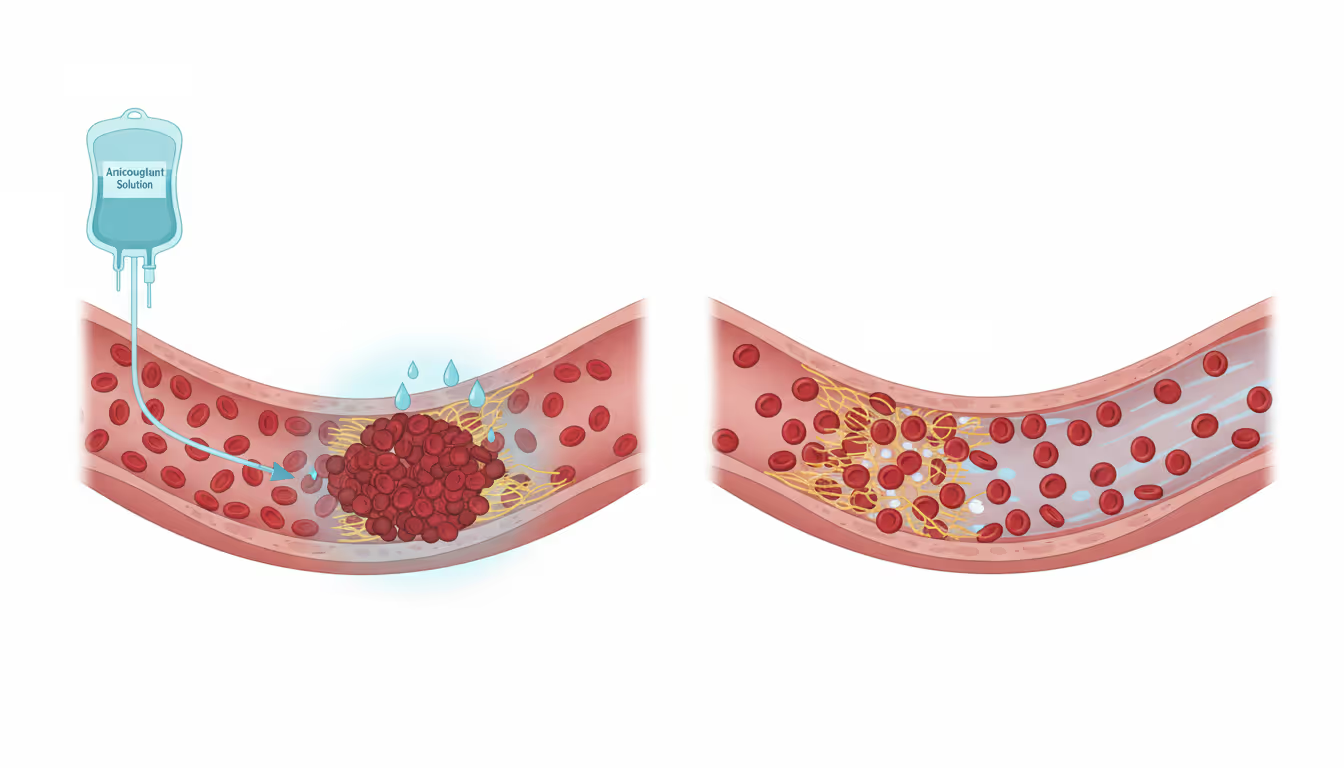
Anticoagulant Agents:These medications are designed to prevent clot formation and keep blood vessels unobstructed. Although often referred to as blood "thinners," anticoagulants do not actually thin the blood but instead work to prevent or reduce clots, known as thrombi. Anticoagulants serve multiple purposes, including the prevention and treatment of thromboembolic conditions like pulmonary embolism (PE) and deep vein thrombosis (DVT). Thrombi can dislodge, travel through the bloodstream, and block blood vessels, such as those in the lungs. Anticoagulant drugs used for these medical conditions include:- Intravenous options like heparin, which deactivates thrombin and several other clotting factors necessary for clot creation. Newer medications, such as enoxaparin (Lovenox) and fondaparinux (Arixtra), are also available.- Oral anticoagulants such as warfarin and dicumarol operate by obstructing the liver's synthesis of vitamin K-dependent factors essential for clotting. Some newer oral medications, like rivaroxaban (Xarelto) and dabigatran (Pradaxa), target factor Xa and thrombin directly, respectively.Anticoagulant solutions are also utilized to preserve stored whole blood and its components. These include heparin and acid citrate dextrose (ACD). Additionally, anticoagulants are used to prevent blood samples in laboratories from clotting. These agents include heparin and compounds that bind calcium ions, inhibiting the clotting process, such as ethylenediaminetetraacetic acid (EDTA), citrate, and oxalate.




